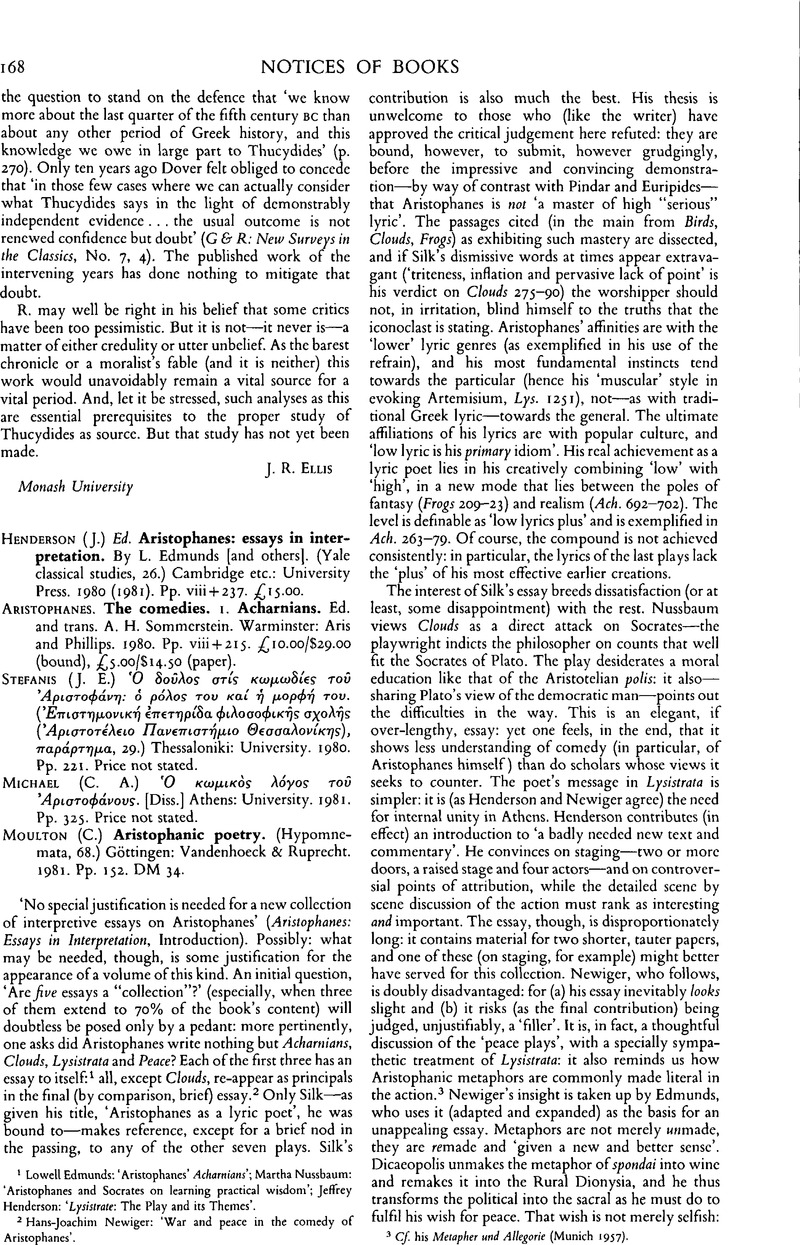No CrossRef data available.
Published online by Cambridge University Press: 11 October 2013

1 Lowell Edmunds: ‘Aristophanes' Acharnians’; Martha Nussbaum: ‘Aristophanes and Socrates on learning practical wisdom’; Jeffrey Henderson: ‘Lysistrate: The Play and its Themes’.
2 Hans-Joachim Newiger: ‘War and peace in the comedy of Aristophanes’.
3 Cf. his Metapher und Allegorie (Munich 1957)Google Scholar.
4 The book was originally intended as a Loeb: the present publishers deserve congratulation for undertaking its production.
5 The Introductory Note may be thought a little skimpy. But views on staging (for example) do of course emerge in Sommerstein's stage-directions and the Notes.
6 ‘Flute/flautist’ occur throughout the volume alongside the preferable ‘pipe/piper’. The note on ‘pipers’ (862) reads: ‘Thebes was famous for flute music’.
7 One quibbles (apart from ‘flutes’) in only four places: 32, tr. ‘looking away (from Athens) towards my farm’ (?), 721, tr. ‘it is open for all… but not for Lamachus’ (?), 920, 967 (n. 8).
8 For example, 920 (Rennie's ‘beetle-boat’) and 967 (Stefanis' ‘for salt-fish’).
9 There are a number of (mainly minor) misprints, including talk of ‘Comic posts’ (p. 7). An Index will presumably be added when all eleven volumes are complete.
10 A sprinkling of misprints includes ‘preverted’ (p. 92) and ‘accountrements’ (pp. 120, 132).
11 His bibliography does not mention Hardy Hansen, ‘Aristophanes' Thesmophoriazusae: Theme, Structure and Production’ (Philologus 120, 1976, 165–85Google Scholar). See now Frances Muecke, ‘A Portrait of the Artist as a Young Woman’ (CQ 31, 1982, 41–55).